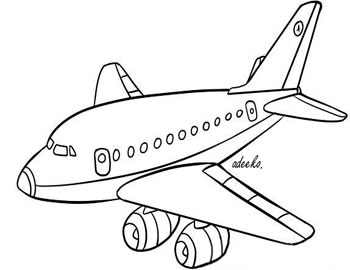
THE Nigerian aviation industry is expected to grow rapidly in the coming years, following the signing of the solemn commitment to liberal air transport treaty by Nigeria and 22 other African countries after the formal establishment and inauguration of a Single Africa Air Transport Market (SAATM) at the 30th General Assembly of the African Union in Addis Ababa, Ethiopia. It is expected that the established regional air transport treaty will open the doors to very much reduced cost of air travel within the continent. The SAATM is an open sky treaty that encourages the liberalisation of the rules and regulations of civil/commercial aviation to create a free market environment for eligible airlines of the 23 countries and fully operate the traffic rights provided for in the Yamoussoukro decision. This is a welcome development and a step in the right direction by all the countries involved. Some observers might wonder why some African countries have not agreed to SAATM, one may argue that the whole African continent is not developed but variably all African states has got an aerodrome facility, and so it could be established the only hindrance to a unified Africa is the predominantly unstable polity and our leaders.
As the treaty comes into force, we cannot pretend about the undesirable state of many African airlines. Even Africans, given a choice will patronize international airlines above African airlines over security concern, poor customer service and other related issues. A critical look at the market in Africa will reveal that, more than seventy (70) percent of international passengers are transported by international airlines while African airlines scramble for the remaining less than thirty (30) percent. This still causes a huge disparity in our skies. The problem of direct flights which is a direct benefit of a liberalised airspace for African travelers plying routes within the continent still poses severe challenges. There are destinations within Africa which requires boarding two or three different airplanes and equally experience long stop-over before reaching your destination. Thus making flights unnecessarily long within the region.
Some African airlines do not even fly into popular destinations like Lagos and Johannesburg and fly some other one. A place like Mogadishu in east Africa is only operated by Turkish Airline from Lagos airport and often, one might need to get to Istanbul (a city in Turkey) before going en-route Mogadishu, places of such and some other African countries need to open up their airspace to make it easier for African airlines to airlift more people to ply these route. Obviously, if SAATM is fully implemented, it will improve inter-state travels within Africa states.
Air travel in Africa is not only expensive, its time consuming, keeps families apart due to long stop-over periods and also hinder socioeconomic development of nations. One can easily travel within Europe with a 100 euro bill while within some West African countries return tickets remain unnecessarily expensive. Travelling within Africa is not just difficult but very much expensive, for instance the Lagos – Accra route which is shorter in distance and of course in time when compared to some domestic routes within Nigeria is serviced with twice the fare of its average distance in time.
Africa, as a continents need to integrate her airspaces as a resource to in turn reduce transactional cost and air travel fare. An observer was of the opinion that having a single air transport market will eventually lead to monopoly by major African carrier and also favor African carriers more than it can make International airlines remain fully in business on African routes. SAATM will no doubt strengthen the African market, make more African airline viable and probably resurrect defunct national carriers like the Ghana Airways, Nigeria Airways and many others.Easy and efficient air travel within the continent would enhance the ease of doing business, inter-line agreements and encourage intra-African trade. I am of the opinion that the African Union (AU) should implement policies that would slowly and very much steadily discourage non-African carriers from plying SAATM routes. In as much as we need healthy competition from the international communities, we also need to strengthen, and allow what belongs to us grow. International carrier should be charged more fees to fly into our single Africa airspace, and not open it cheap to them. There is a whole lot of money that can be tapped in an airspace if our policies are revised.
To conclude, a desirable complementary policy to the SAATM will be the issuance of visas on arrival for Africans, or a single visa covering all African states. This will become a catalyst to address the stress in visa applications for Africans visiting other African states; pretty much like the Schengen visa policy. It will also enhance social integration and improve our regional economy. Africa really needs policies that enhance integration to enable the continent realize its full socio-economic potential.
Oyejide is a transport geographer
END

Be the first to comment